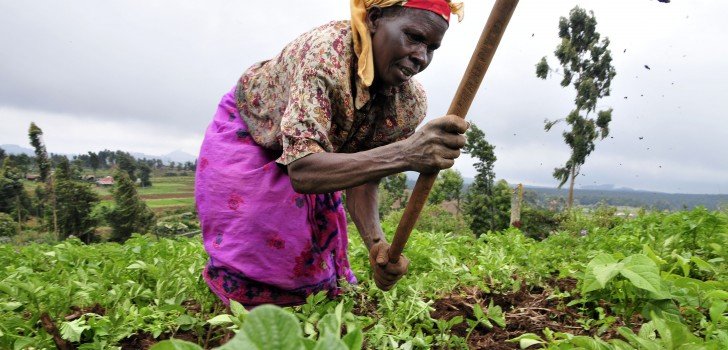In a country where extreme racial tensions are a state-embraced part of the culture, a new wrinkle has emerged breaking down some of those racial barriers. In Zimbabwe, land ownership, particularly ownership of farmland, has been a major issue in the country’s race wars. In what it called retribution for white settlers stealing the land from black inhabitants, the government recently redistributed land ownership across the African nation.
Specifically, 15 years ago, the government started seizing farmland from thousands of white farmers – without compensation – and giving it to blacks as “recompense for the abuses of colonial rule.” However, the black landowners are now struggling to keep the farms functioning as they lack the knowledge and expertise of how to do so. As a result, they are quietly reaching out to white farmers to serve as managers or consultants on the farms with the hopes that the crops and land will be saved.
Despite the fact that black landowners are willingly reaching out to white farmers for their help, the Zimbabwe government does not support the tactic. President Robert Mugabe believes that creating partnerships with farmers is a step backward. He stated last month that, “We can’t have another war to liberate a country we have already liberated.”
Mugabe has long fought against white minority rule and in 1980, he helped Zimbabwe break away from that rule. He has stated that, “If white settlers just took the land from us without paying for it, we can, in a similar way, just take it from them without paying for it.”
The two racial groups viewed the property redistribution very differently. Whites believed it was pure theft. Blacks who received the land believed it simply was justice after a period of time where a small group of British land settlers and their sons and daughters controlled the African nation. So far, it has been quite difficult to bridge that divide.
But, Zimbabwe’s economy is spiralling downward – and much worse than in 1997 when the country’s economy was one of the strongest on the African continent. Between 2000 and 2009, revenue from agriculture declined by $12 billion. The country who was once referred to as “the breadbasket of Africa” now relies on international assistance to feed 25% of its population.
Hence, the conflict that arises when black landowners seek help from white farmers. To some Zimbabwean citizens, asking for such help is tantamount to failure. Savior Kasukuwere, the minister of local government describes this tension as, “The whites had their turn. It’s time for our people to have a chance.”
The white farmers who still remain in the country (about 300 down from 6,000 in 1980) also have issue with the requests for help. Peter Steyl, head of Zimbabwe’s commercial farmers’ union pointed out that, “There’s no one who disagrees with social justice, but instead we watched as land reform was used as a tool of political patronage.”
Despite the tensions, many whites and blacks are working together to get crops up and running again. One black landowner aptly pointed out that, “The problem now is that [blacks] have the land, but [whites] have the experience. We need to help each other.”
Temba Mliswa, a former member of parliament who received his farm under the land-reform program describes the situation as follows: “There’s a recognition among black farmers that there’s a lack of capacity even if the government doesn’t want to acknowledge it.”
Stay Connected